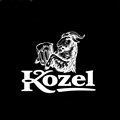Vultures under Threat
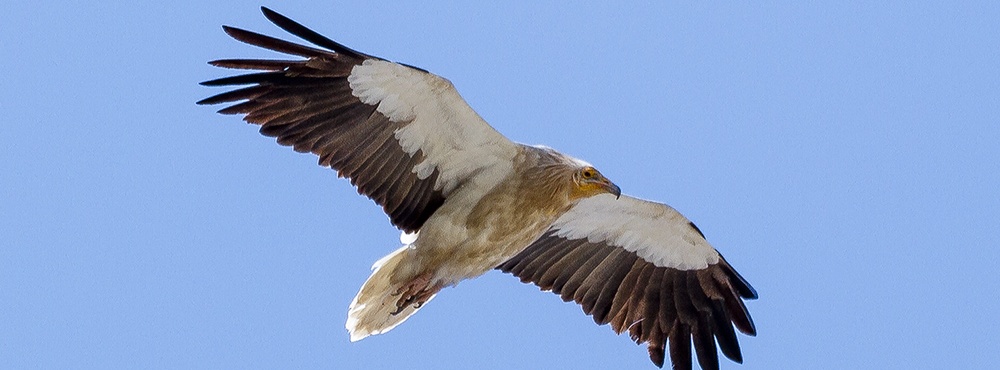
Mrchožraví živočichové hrají v přírodě důležitou roli zdravotní policie, která odklízí mrtvá zvířata, čímž zabraňuje šíření chorob. Jejich stavy však celosvětově klesají, a to zejména vinou otrav.
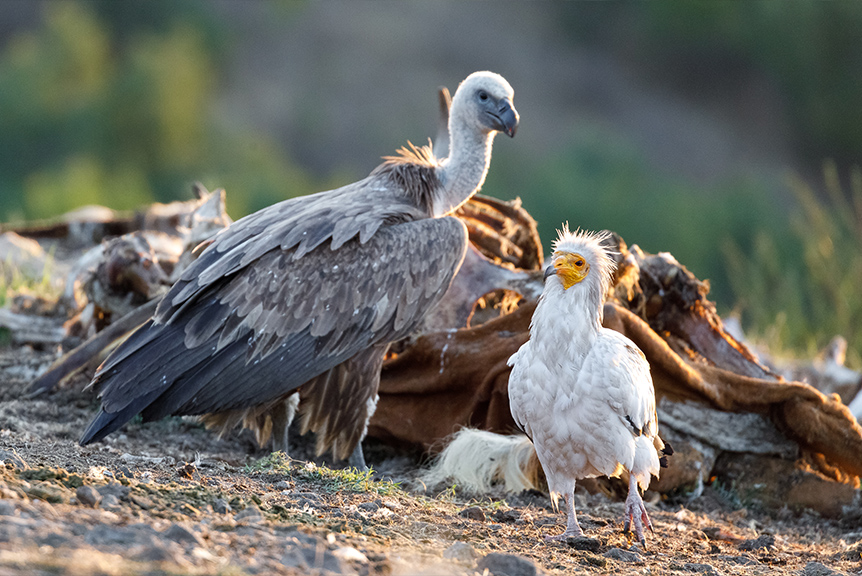
An Egyptian vulture (right) and a griffon vulture (left) at a feeding site in Bulgaria
Photo: Miroslav Bobek, Prague Zoo
The food that vultures find in the wild in today’s Europe often represents a ticking time bomb. It may be poisoned baits that farmers illegally set out for wolves and jackals, or carrions from animals shot with lead-containing cartridges that are toxic to vultures. Livestock carcasses can also pose a risk, as they frequently contain residues of veterinary drugs that can be fatal for vultures, weaken their immune systems, and reduce their breeding success. During their annual migration between Europe and Africa, many vultures also die after colliding with power lines or wind turbines, or fall victim to illegal capture.
The Balkan population of Egyptian vultures numbers only a few dozen breeding pairs and is classified as Critically Endangered on the IUCN Red List. Yet the Balkans are one of the two main starting points for the species’ migration. Roughly half of this population—over thirty breeding pairs—lives in Bulgaria. For this reason, Prague Zoo has been developing a project in cooperation with the Bulgarian conservation organisation Green Balkans since 2013, with the long-term goal of returning captive-bred Egyptian vultures to the wild in the Balkans.
The smallest of the five vulture species found in Europe, the Egyptian vulture is, together with the Rüppell’s vulture, also the most endangered of them. This is why Prague Zoo is pursuing and developing a project aimed at helping vultures in their southern European homeland.
| Focal species: Egyptian vulture (Neophron percnopterus) Where we help: Bulgaria (mainly the Eastern Rhodope Mountains) and other areas in southern Europe Project active since: 2013 |
 Vultures under threat
Vultures under threat
To a greater or lesser degree, vultures are threatened on every continent where they live, including Europe. The main causes are poisoning from agrochemicals, veterinary drugs, and toxic baits. Power lines also pose a serious threat.
 Breeding programme
Breeding programme
Prague Zoo ranks among the most successful breeders of the Egyptian vulture. Since 2002, it has kept the species’ studbook, and since 2012, it has coordinated its EAZA Ex-situ Programme (EEP), a population management and conservation programme under the auspices of the European Association of Zoos and Aquaria (EAZA).
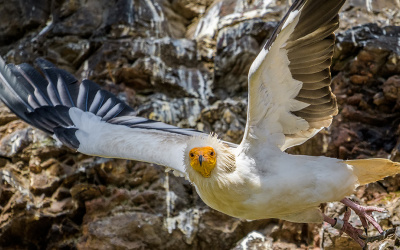 Return to the wild
Return to the wild
We take part in releasing captive-bred chicks back into the wild. We have also contributed to research on release methods designed to ensure the highest possible survival rate for young vultures.
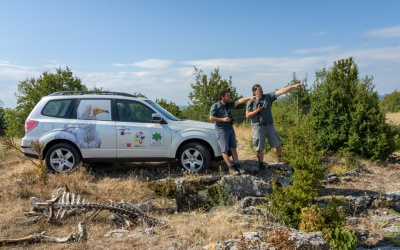 Other activities
Other activities
Prague Zoo provides financial support to the Bulgarian conservation organisation Green Balkans. Among other things, it has contributed to the construction of breeding aviaries and the establishment of a feeding site for the local wild vultures.
ZOOPRAHA.CZ
Contacts
- The Prague zoological garden
U Trojskeho zamku 120/3
171 00 Praha 7
Phone.: (+420) 296 112 230 (public relations department)
e-mail: zoopraha@zoopraha.cz
Others






